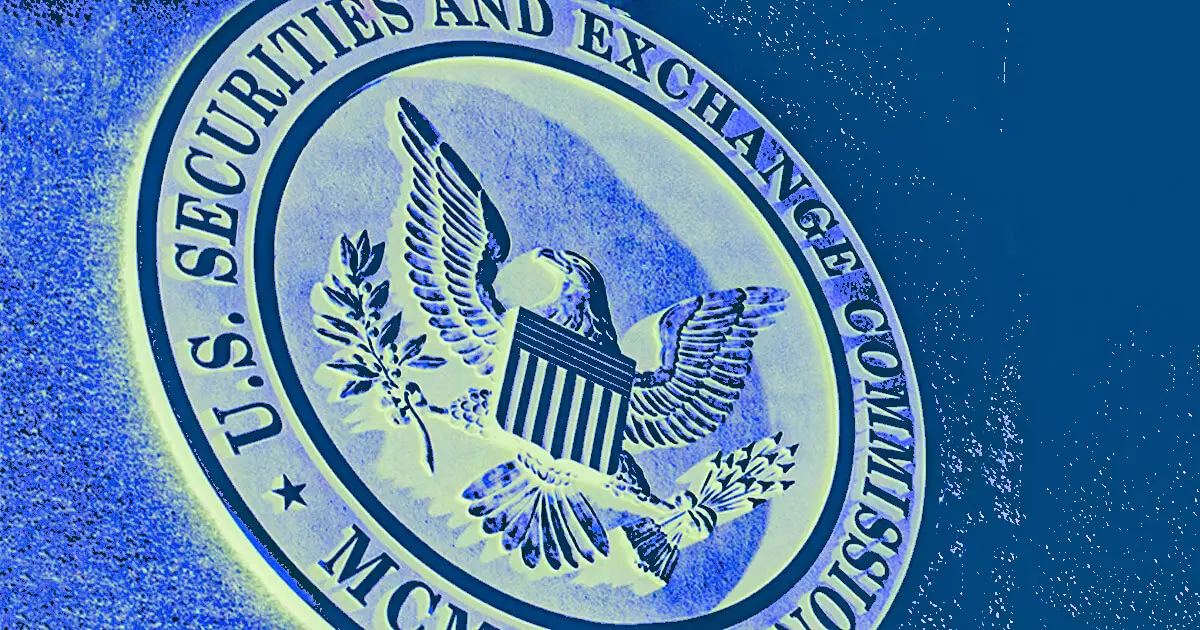In a recent discussion on Fox Business, SEC Commissioner Mark Uyeda expressed significant concerns about the Securities and Exchange Commission’s (SEC) handling of cryptocurrency regulation. He characterized the agency’s approach as a “disaster for the whole industry,” particularly due to the lack of clear guidelines. Uyeda’s statements surfaced amidst mounting tensions between the SEC and various crypto firms, as regulatory bodies seem to prioritize enforcement actions over establishing transparent policies.
Uyeda’s critique highlights a substantial disconnect within the SEC’s policy-making strategy, arguing that the agency has favored “policy through enforcement” over constructive regulatory dialogue. The consequences of this tactic are evident in the current state of confusion and uncertainty plaguing the crypto landscape in the United States. With cryptographic technologies evolving at a breakneck pace, the absence of consistent regulatory frameworks leaves both corporations and investors navigating a murky terrain filled with anxiety and legal risks.
The ramifications of the SEC’s enforcement-first approach have sparked a series of legal challenges from various crypto organizations. Most notably, Crypto.com recently filed a lawsuit against the SEC, claiming that the agency has exceeded its jurisdiction by categorizing countless crypto tokens as securities. This legal action not only questions the SEC’s regulatory authority but also serves as a rallying point for those advocating for delineated guidelines in an increasingly complex digital asset environment.
Additionally, the situation is complicated by ongoing litigation involving Ripple Labs, which has drawn considerable attention following the agency’s appeal against a ruling on XRP’s classification. Both Ripple and Crypto.com are emblematic of a wider resistance among cryptocurrency firms, as they grapple with regulatory overreach and the need for clarity regarding what constitutes a security under existing laws.
Uyeda underscored an immediate necessity for the SEC to define which assets fall under the umbrella of securities regulations. The commissioner revealed a rising frustration among industry participants, who feel unequipped to navigate compliance without authoritative interpretations. This critical gap in guidance fuels the argument that regulatory clarity is not merely beneficial but essential for fostering innovation and stability within the crypto sector.
As the landscape of digital assets continues to evolve, it becomes increasingly vital for regulators to engage in collaborative conversations with industry stakeholders. By establishing clear definitions and boundaries, the SEC could transform its role from being a reactive enforcement body into one that proactively shapes a regulatory environment conducive to growth.
Uyeda’s insights call for a reevaluation of the SEC’s stance on cryptocurrency regulation. The current atmosphere, marked by a series of lawsuits and enforcement actions, suggests that significant reforms are necessary for the sector to thrive. By prioritizing clarity and open dialogue, the SEC has an opportunity to not only alleviate industry tensions but also to support a burgeoning field that holds the potential to redefine financial landscapes globally. The urgency for clear regulatory frameworks cannot be overstated; without them, the crypto industry could remain shackled, stifling innovation and undermining investor confidence.


Leave a Reply